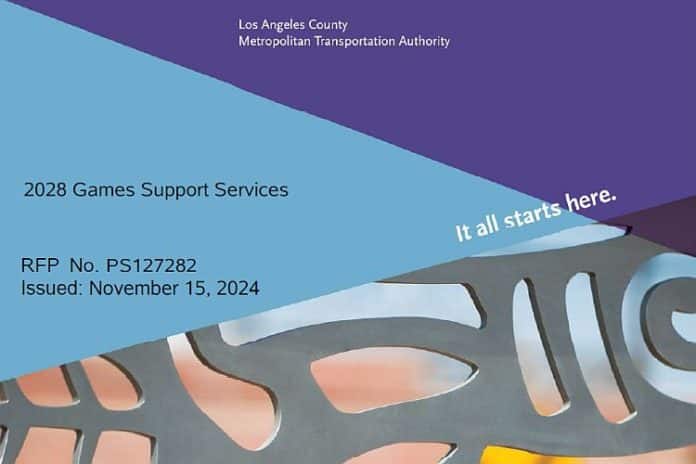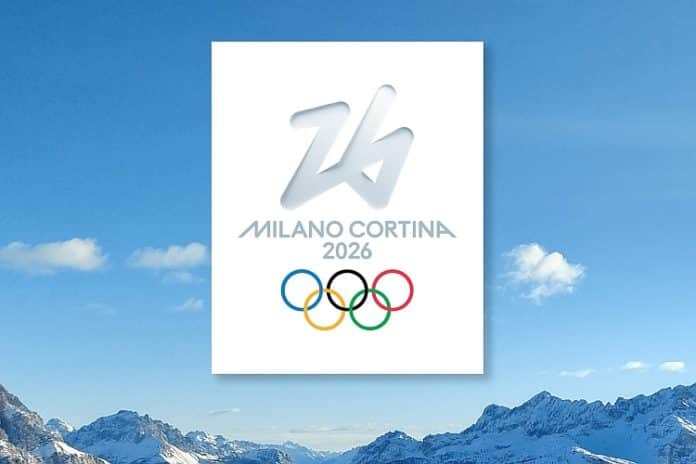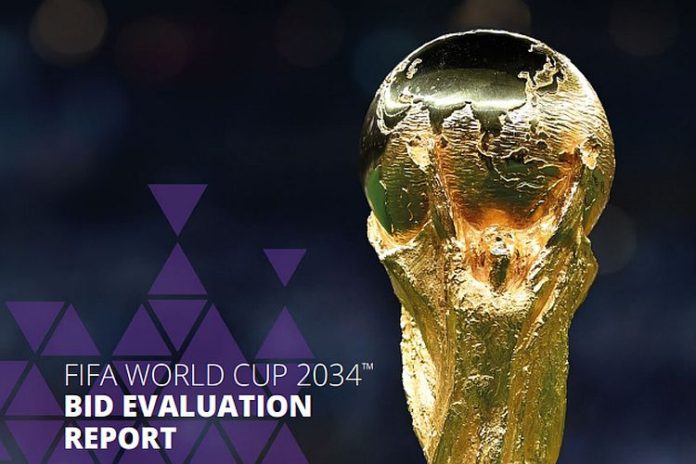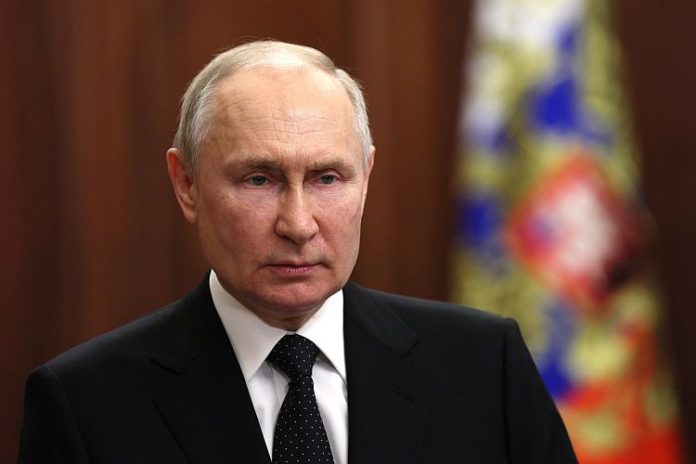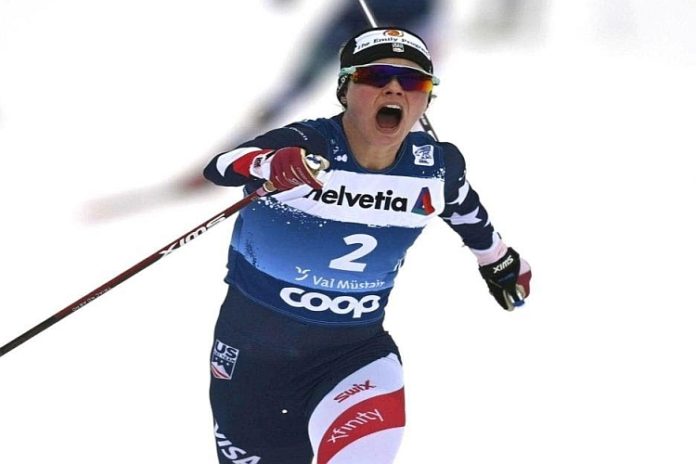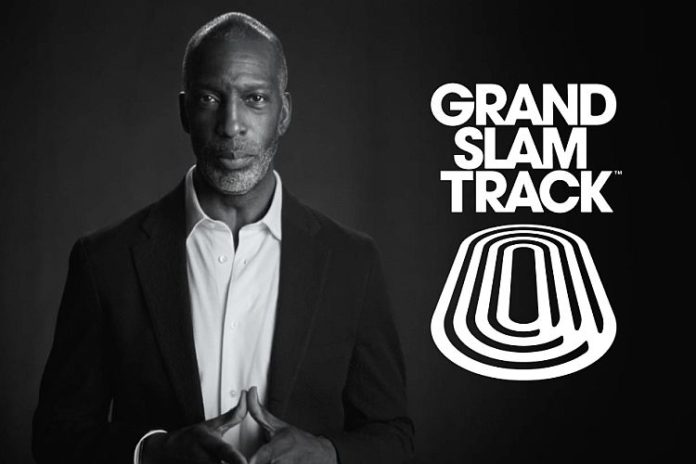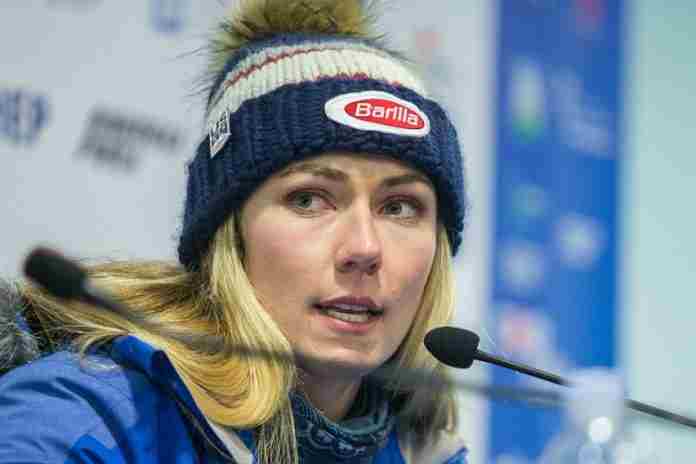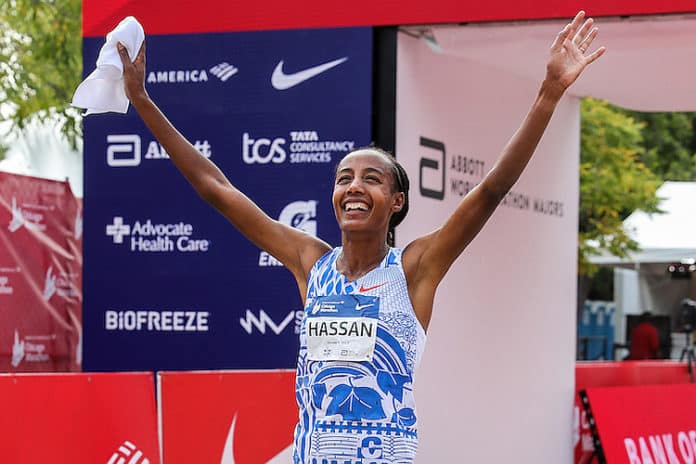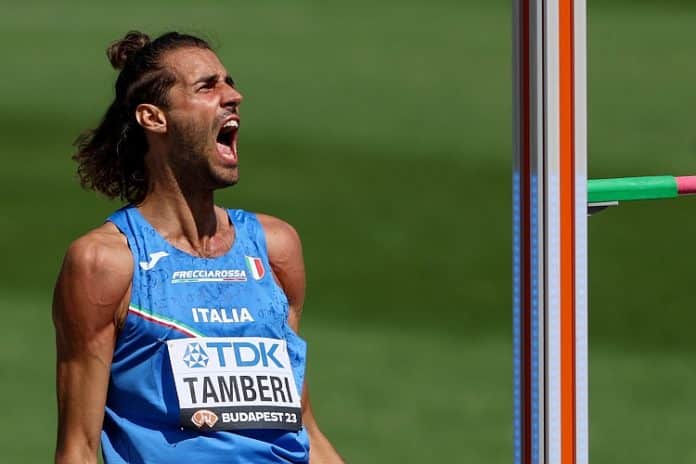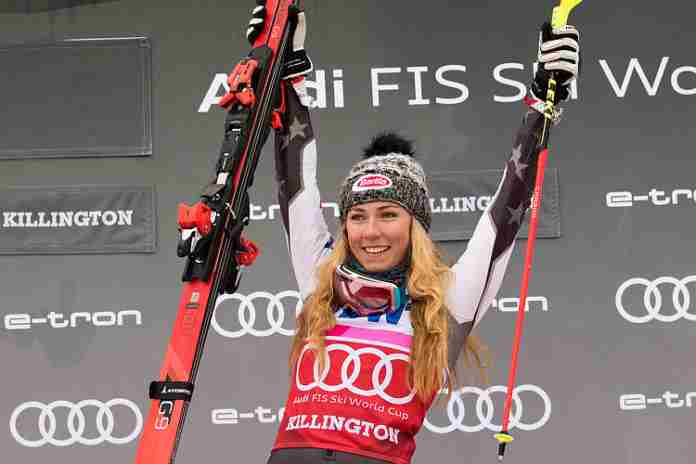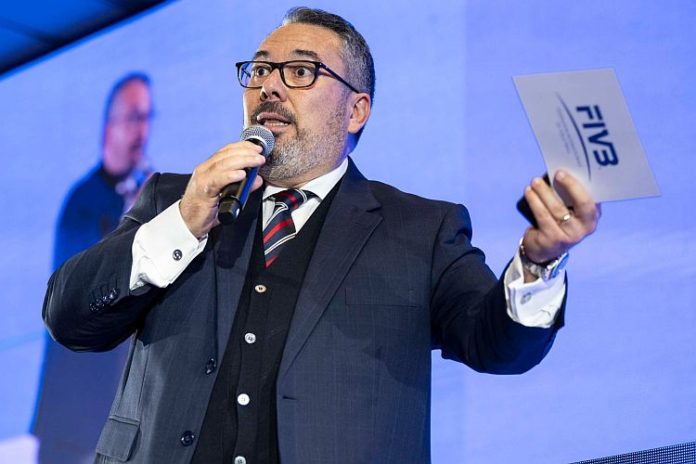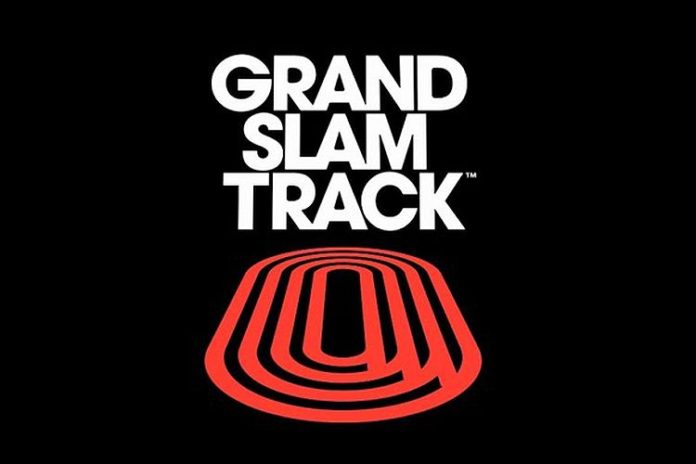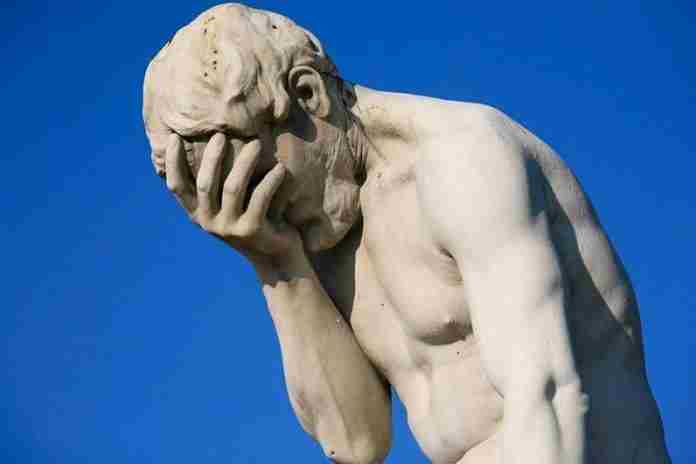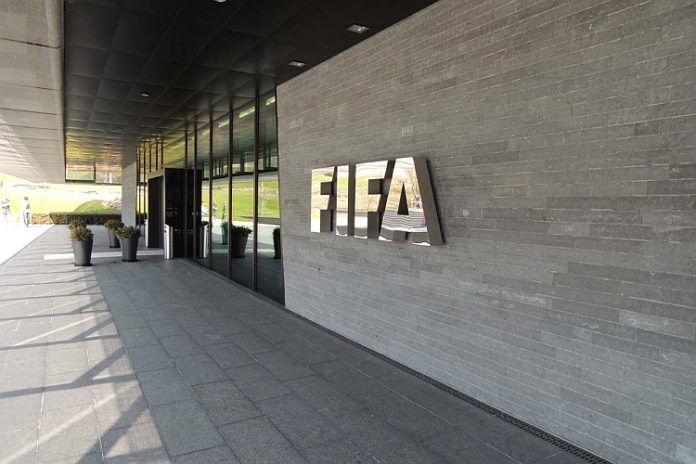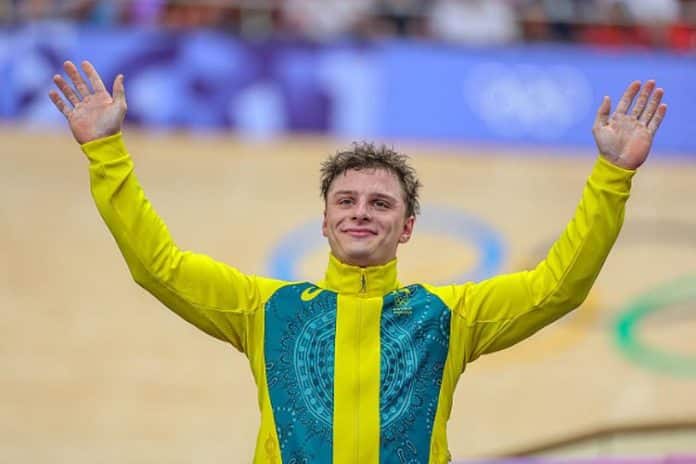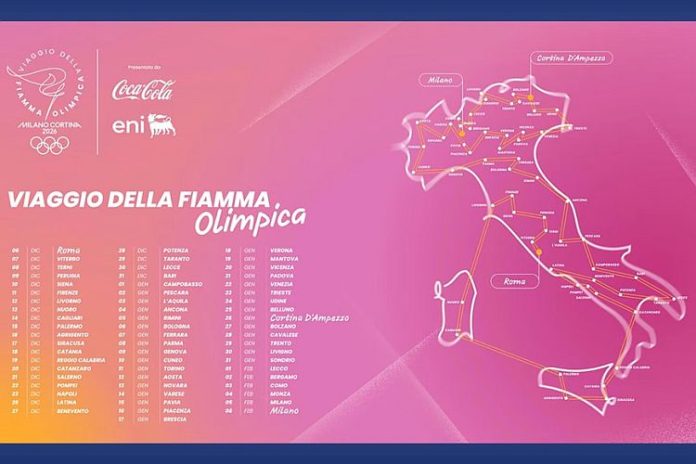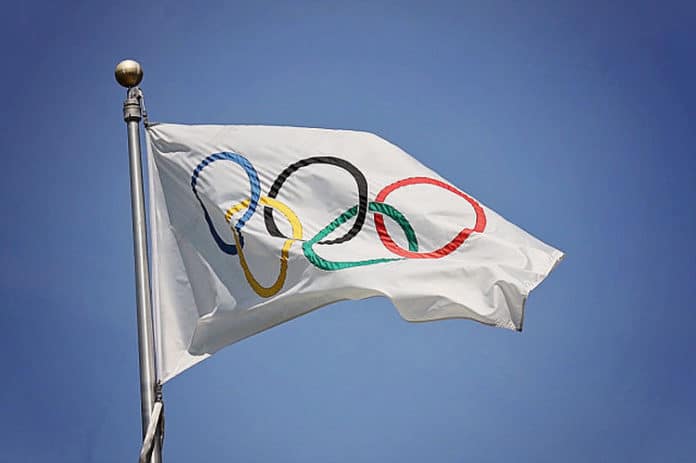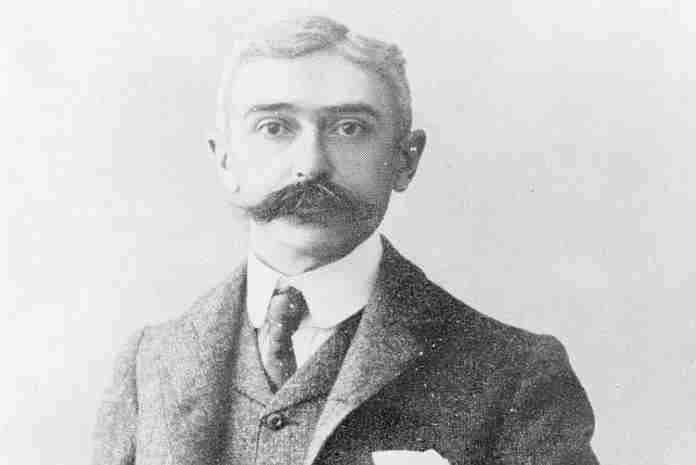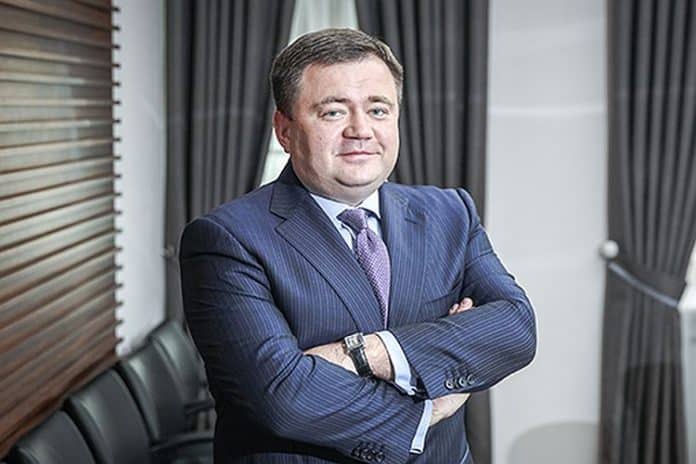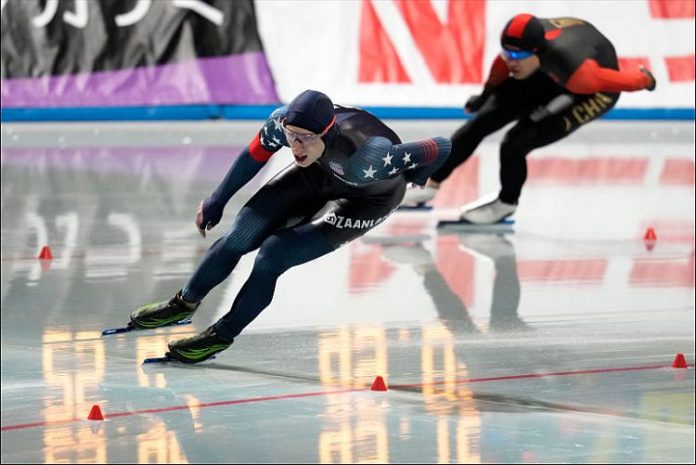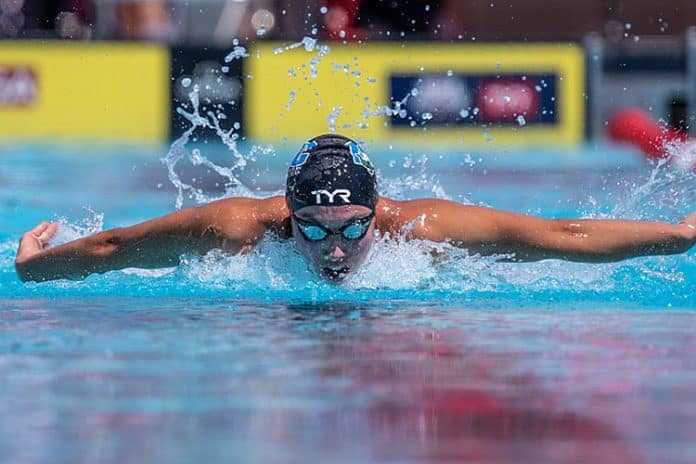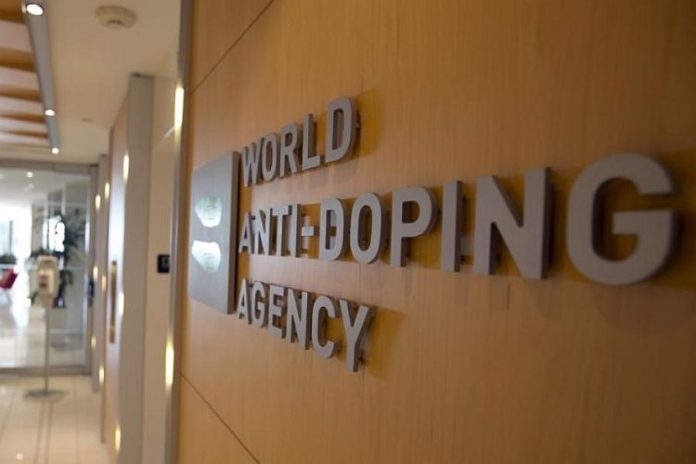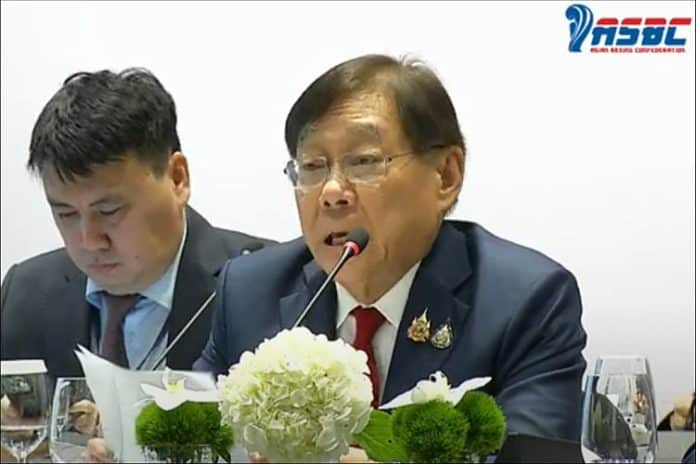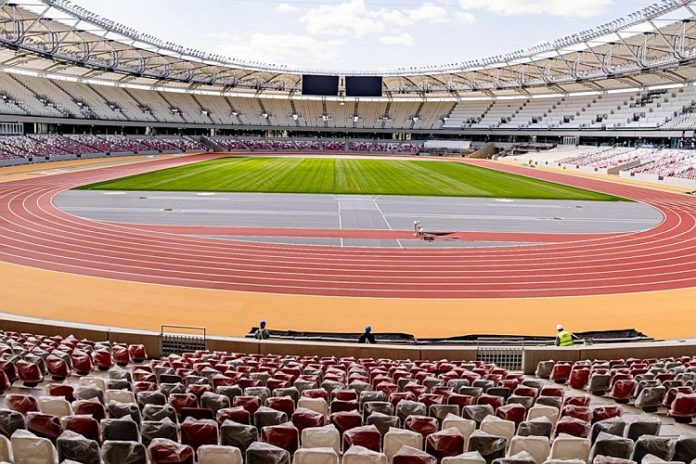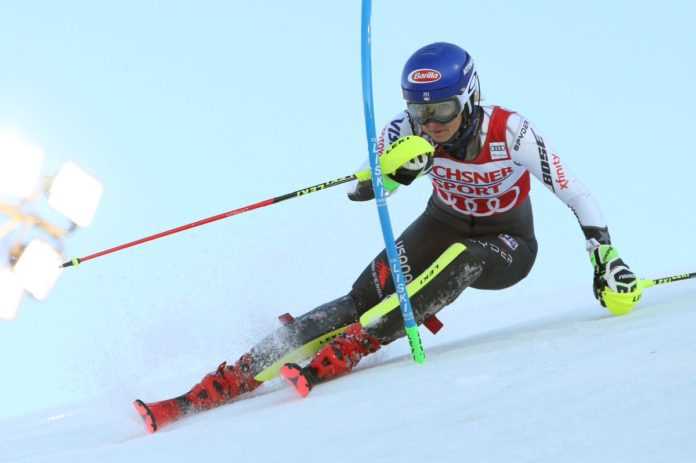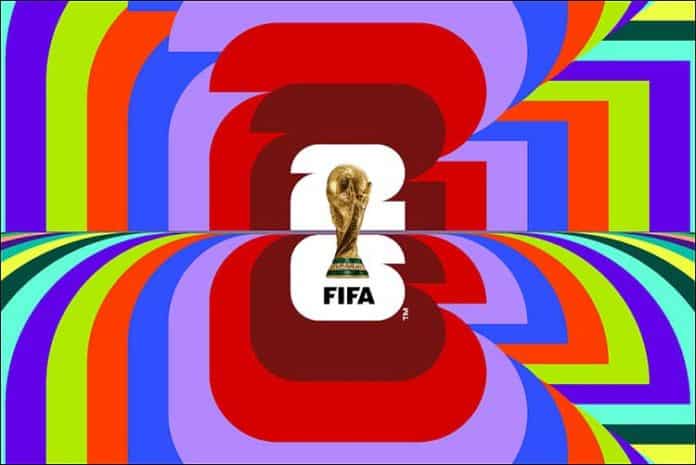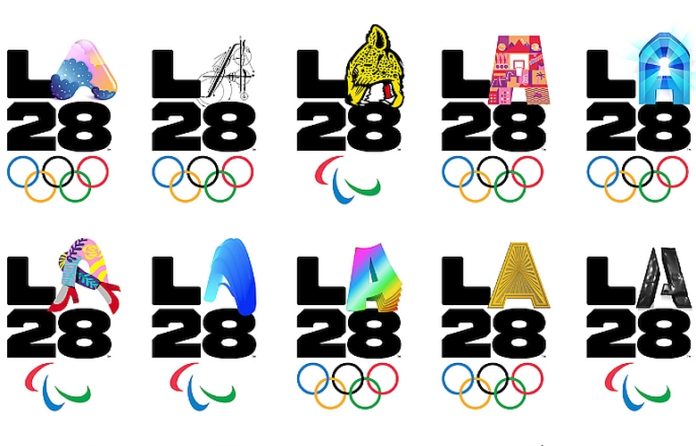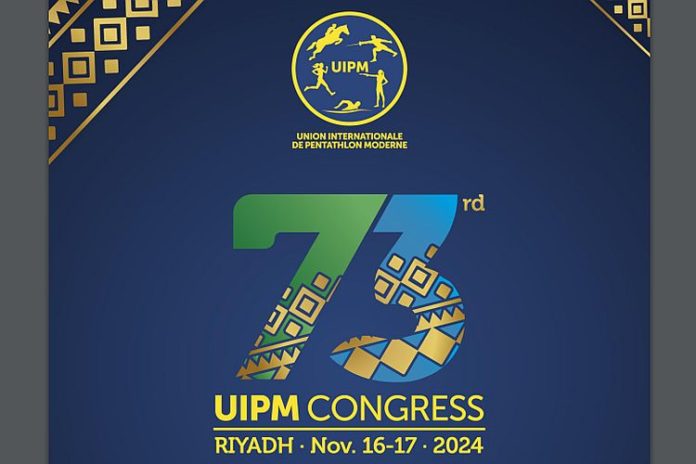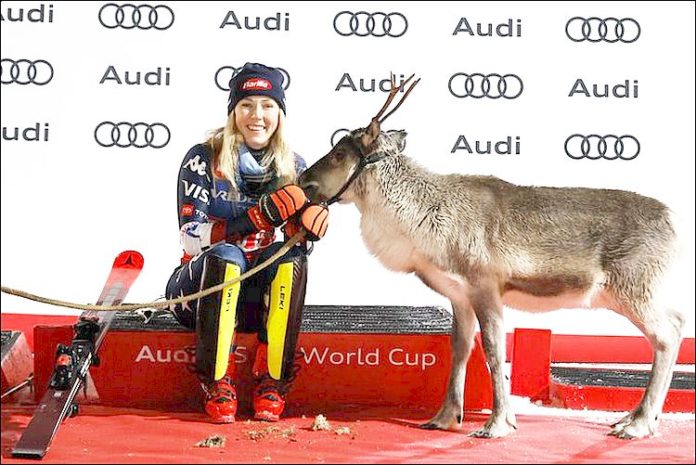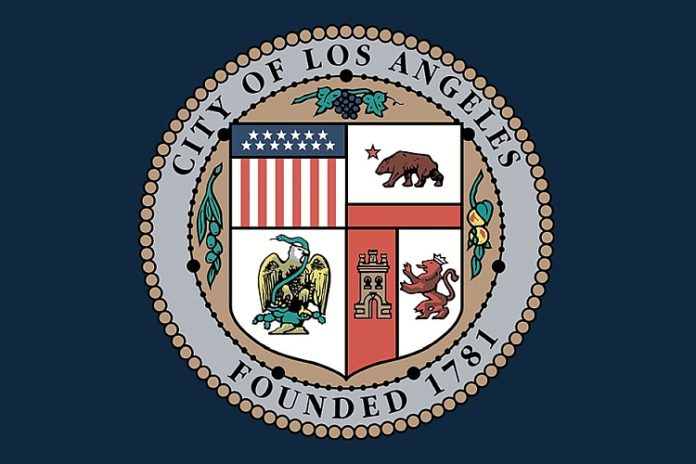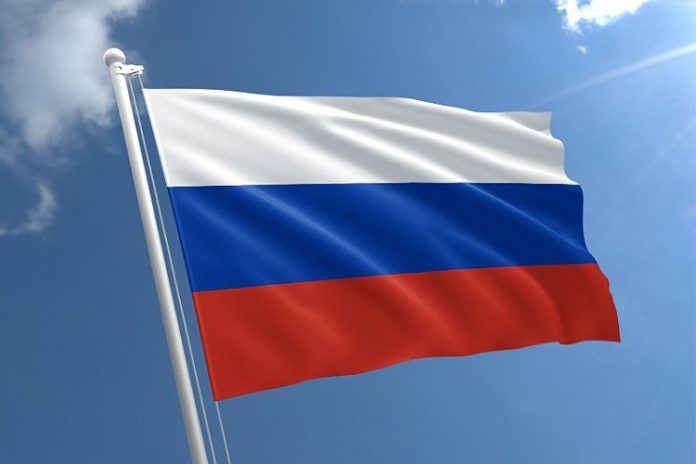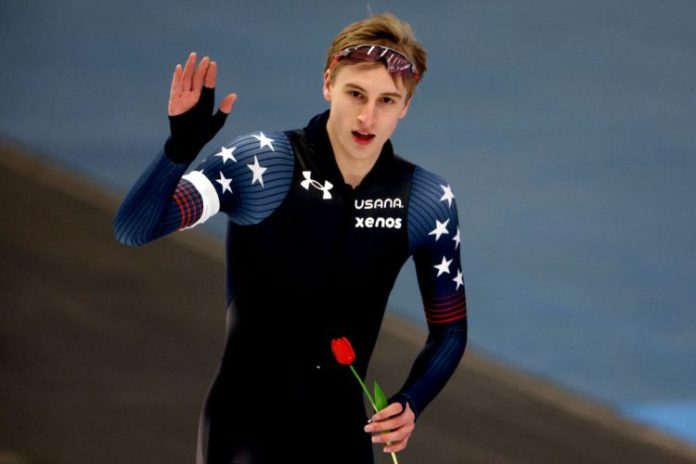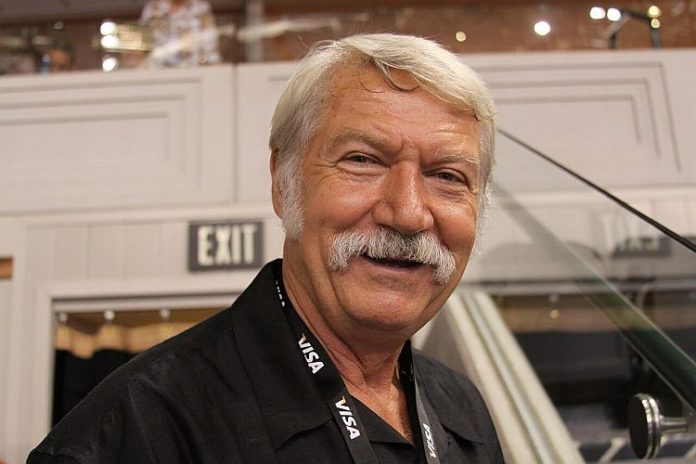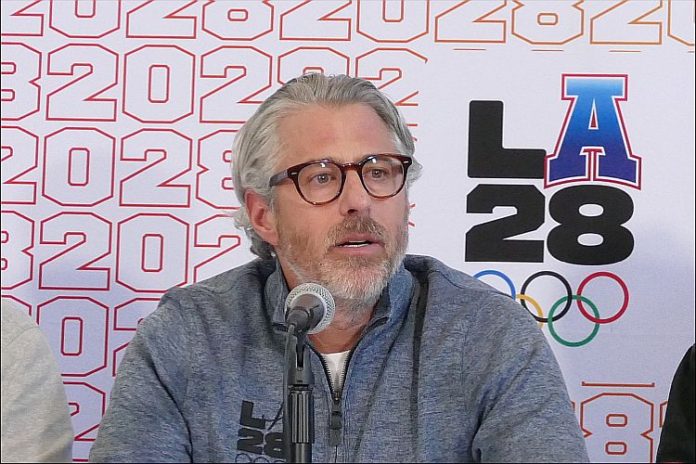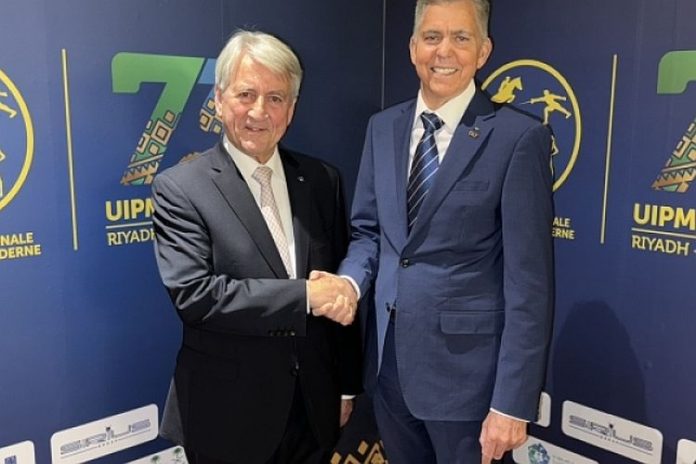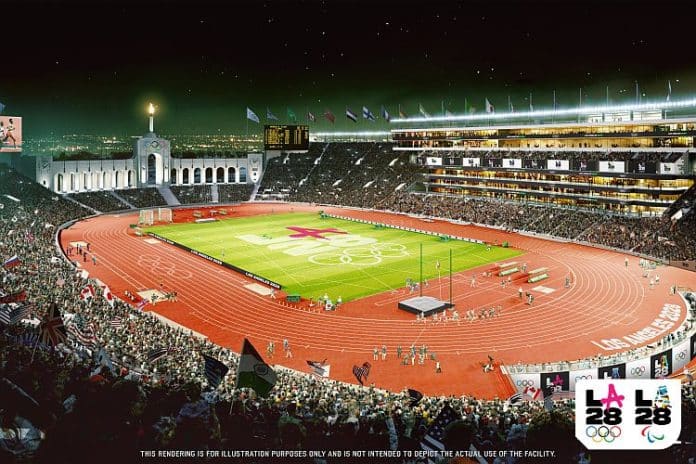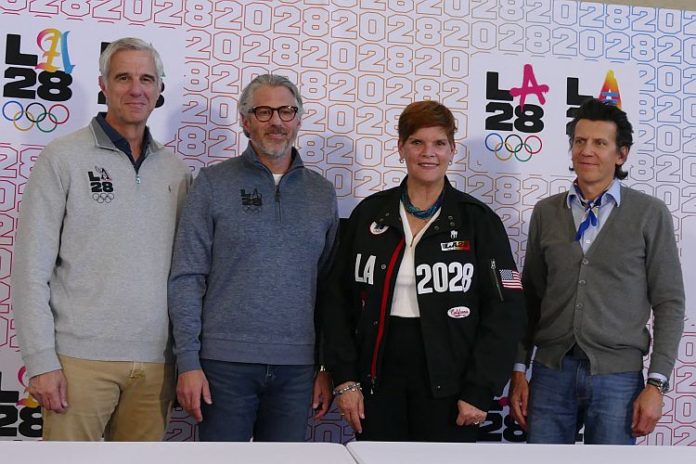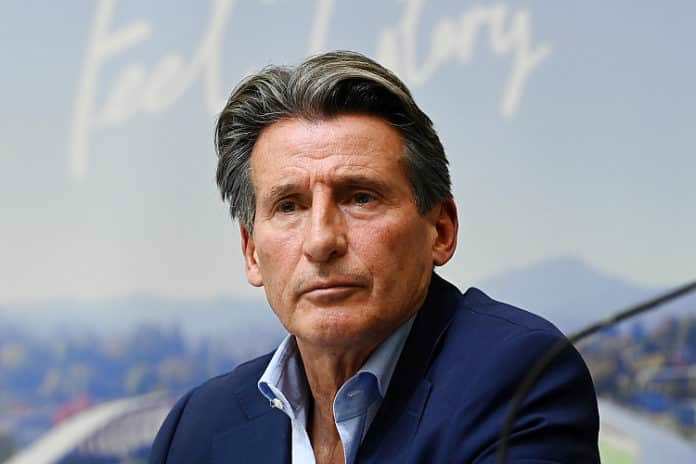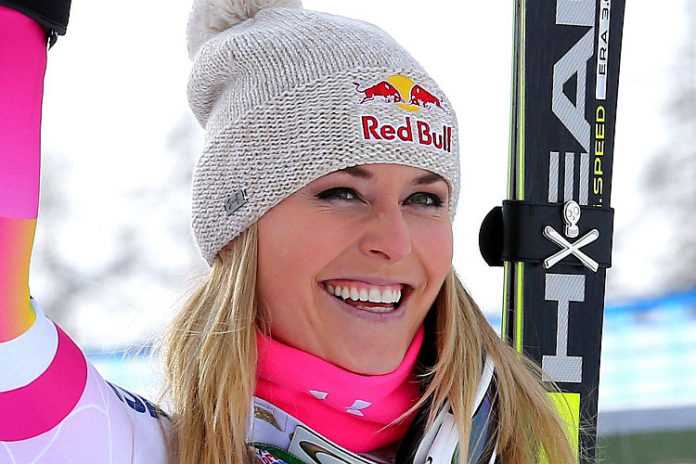★ The Sports Examiner: Chronicling the key competitive, economic and political forces shaping elite sport and the Olympic Movement.★
★ To get the daily Sports Examiner Recap by e-mail: sign up here! ★
≡ THE 5-RING CIRCUS ≡
● Athletics ● First-time marathoner Sabastian Sawe Kimaru of Kenya won the 2024 Maraton Trinidad Alfonso in Valencia (ESP) in a world-leading 2:02:05, taking the lead for good after 36 km and running away to move to no. 5 all-time, with the eighth-fastest performance in history.
It’s also the second-fastest debut marathon ever, and Sawe out-distanced Deresa Geleta (ETH) to the finish by 33 seconds. Geleta’s 2:02.38 makes him no. 7 all-time. Kenya’s Daniel Kibet got a lifetime best of 2:04:24 in third, with the top nine all getting lifetime bests. American Abbabiya Simbassa was 17th in 2:06:53, also a lifetime best, moving him to no. 4 all-time U.S., with the no. 7 performance.
Ethiopia’s Megertu Alemu, who did not finish the Paris Olympic women’s marathon, got her third career marathon win in 2:16:49, her second-best time ever. She broke away from runner-up Stella Chesang (UGA: 2:18:26) after 22 km, with Tiruye Mesfin (ETH) third in 2:18:35.
Sara Hall was the top American finisher in 10th at 2:23:45. The race was dedicated to the victims of the devastating floods in Valencia on 29 October, which killed 229 people; a moment of silence was held at the start of the race.
● Badminton ● India placed finalists in all five events of the BWF World Tour Syed Modi India International in Lucknow (IND) and claimed three wins with top-seeded Lakshya Sen (IND) winning the men’s Singles over Jia Heng Jason (SGP), 21-16, 21-7, and no. 1 seed V. Sindhu Pusarla (IND) took the women’s title by 21-14, 21-16 against Luo Yu Wu (CHN).
Treesa Jolly and Gayatri Gopichand Pullela (IND) swept aside Li Jing Bao and Qian Li (CHN) in the women’s Doubles by 21-18, 21-11. However, Indian finalists lost the other two events.
Di Huang and Yang Liu (CHN) won the men’s Doubles over Pruthvi Krishnamurthy Roy and Sai Pratheek.k (IND), 21-14, 19-21, 21-17, and Dechapol Puavaranukroh and Supissara Paewsampran (THA) took the Mixed Doubles with a 18-21, 21-14, 21-8 victory against Dhruv Kapila and Tanisha Crasto (IND).
● Biathlon ● The IBU World Cup kicked off with relay races in Kontiolahti (FIN), with Sweden taking wins in the Single Mixed Relay with Ella Halvarsson and Sebastian Samuelsson in 36:17.6, more than 10 seconds ahead of France. The U.S. pair of Deedra Irwin and Maxime Germain finished 10th in 37:41.1.
The 4×6 km Mixed Relay was a win for Norway in 1:09:59.6, well ahead of France (1:10.00.4). The French won the men’s 4×7.5 km relay over Norway, 1:18:24.4 to 1:18:50.2, and Sweden won the women’s 4×6 km in 1:17:09.0 to 1:18:38.0 for the French.
Individual events will follow in Kontiolahti, from 3-8 December.
● Boxing ● Brazil won four classes to highlight the World Boxing Cup Finals in Sheffield (ENG), with victories in the men’s 57 kg division (Luiz Oliveira), 63 kg class (Breno de Carvalho) and at +92 kg (Joel Ramos Da Silva), plus the women’s 57 kg class (Jucielen Cerquiera Romeu).
English boxers took three titles, in the men’s 71 kg (Odel Kamara), men’s 80 kg (Dimeji Shittu) and women’s 66 kg (Dione Burman).
● Cross Country Skiing ● The FIS World Cup opener for 2024-25 was in Ruka (FIN), with the hone fans cheering immediately for three-time Olympic gold medalist Iivo Niskanen, who won the men’s 10 km Classical on Friday in 23:00,6, ahead of Norwegians Harald Amundsen (23:13.1) and Martin Nyenget (23:14.7). Gus Schumacher was the top American, in 18th (24:04.8).
Four-time seasonal World Cup winner – and two-time defending champ – Johannes Hoesflot Klaebo (NOR) won the men’s Classical Sprint in 2:25.25, ahead of teammate Eric Valnes (2:27.28) and Finn Lauri Vuorinen (2:28.95).
Sunday’s 20 km Freestyle Mass Start was a Norwegian sweep, for Amundsen (46:04.0), Jan Jenssen (46:04.9) and Nyenget (46:05.9). The U.S. finished 7-8 with Zanden McMullen (46:14.1) and Schumacher (46:15.3).
Sweden’s Frida Karlsson, a 10-time Worlds medal winner, took the women’s 10 km Classical in 25:16.2, ahead of comebacking Therese Johaug (NOR) – the 14-time World Champs gold medalist – in second in 26:02.7 after three years off and at age 36. Jessie Diggins of the U.S., the defending World Cup overall champ, was seventh at 26:29.2 with teammate Rosie Brennan in ninth (26:37.2).
Swede Johanna Hagstroem won the women’s Classical Sprint in 2:49.95, over Julie Myhre (NOR: 2:50.33).
In Sunday’s Freestyle Mass Start, Diggins made up a 13-second deficit on the final lap and won her 24th World Cup gold with a tight victory, 51:19.3 to 51:19.6 over Jonna Sundling (SWE), with Heidi Weng (NOR: 51:21.8) in third. Fellow American Sophia Laukli was 10th in 51:43.1.
Said the winner: “It was an epic battle. I was trying to be smart with the draft, but in the last kilometer, I saved it up, found a line, and played it well in the end. I also had amazing skis, so thank you to our wax techs.”
● Curling ● Scotland’s Bruce Mouat, the 2023 World champion and 2022 Olympic runner-up, won a tight battle with 2014 Olympic champ Brad Jacobs of Canada to win the men’s final at the Grand Slam of Curling The National in St. John’s (CAN).
Jacobs had a 2-1 lead after five ends, but Mouat scored twice in the sixth and twice in the eighth to get a 5-3 victory.
Canada’s Rachel Homan, a two-time World Champion, also had to come from behind to win over 2018 Olympic gold medalist Anna Hasselborg (SWE), 6-5. Homan was down 3-2 after three, and 5-4 after seven, but scored twice in the eighth end to pull out the win.
It’s the third Grand Slam win of the year for Mouat (in three tournaments) and second for Homan.
● Cycling ● the second and third legs of the UCI Track Champions League were in Apeldoorn (NED) on Friday and Saturday, with 21-year-old Russian sprinter Alina Lysenko – competing as a “neutral – making a statement by sweeping all four women’s Sprint events.
She took the Sprint on Friday over Olympic champ Ellesse Andrews (NZL) by 0.062 in 11.035, and the Keirin over Andrews by 0.038. On Saturday, she won the Sprint over Colombia’s Martha Bayona Pineda by 0.140 in 11.227, and the Keirin over Dutch rider Steffie van der Peet, by 0.09. Lysenko leads the women’s Sprint division – with two legs to go – with 115 points to 86 for Bayona Pineda.
The Friday women’s Endurance events went to Sarah Van Dam (CAN) in the Scratch race and Anita Stenberg (NOR) in the Elimination race with British star Katie Archibald second in both. On Saturday, Czech Petra Sevcikova won the Scratch over Lara Gillespie (IRL) with Van Sam third and Archibald won the Elimination race over Yareli Acevedo (MEX) with Sevcikova third. Archibald, a six-time Worlds gold medalist, leads this division with 98 points to 71 for Van Dam.
The men’s Sprints saw the return of three-time Paris 2024 gold medalist Harrie Lavreysen (NED), who won the Friday Sprint over Nicholas Paul (TTO) by 0.593 in 10.651, then finished second in the Keirin to Cristian Ortega (COL) by just 0.042 with Paul third. On Saturday, Lavreysen won the sprint over Paris silver winner Matthew Richardson (GBR) by 0.184 in 9.870. But Richardson won the Keirin over Ortega by 0.436, with Lavreysen third. The overall standings now show Lavreysen in front over Richardson by just 106-101.
On Friday, the men’s Endurance winners were Tobias Hansen (NOR) in the Scratch and Dylan Bibic (CAN) in the Elimination race. Bibic, the 2022 World Champion in the Scratch, was second in that race and Hansen was second in the Elimination race.
On Saturday, American Peter Moore took the Scratch race over France’s Oscar Nilsson-Julien, and Hansen beat Bibic in the Elimination race. Bibic, still just 21, has the overall lead in the Endurance division with 94 points to 85 for Hansen.
● Fencing ● Russian billionaire Alisher Usmanov, 71, won a fifth term as President of the International Fencing Federation (FIE), returning to the post after stepping down to fight sanctions against him in early 2022, related to the Russian invasion of Ukraine. He won an overwhelming victory by 120-26 over Swede Otto Drakenberg at the federation Congress in Tashkent (UZB).
He released a statement which included:
“I am grateful to the international fencing family for their trust and support, which convinced me that my decision to run for the FIE Presidency is the right one. I could not ignore the opinion of the 103 national federations that supported my nomination and I thank each federation that voted for my candidacy. …
“As is well known, I am still subject to unjustified restrictions, which I am currently challenging in court. In this regard, I declare that I have always acted in the best interests of the FIE and will continue to take all necessary measures to prevent the legally unfounded restrictions imposed on me being extended to the FIE and its activities.”
Usmanov has played a crucial role in the FIE finances, contributing more than $80 million by the end of 2019 to support the federation, and is expected to continue to do so. It remains to be seen what impact a Russian president will have on the federation going forward.
¶
One of the most influential fencers in U.S. history, Peter Westbrook, passed away at 72 on Friday. A U.S. Olympian in the Sabre in 1976-84-88-92-96, plus the 1980 team that did not go to Moscow, he won a bronze medal in 1984 and three Pan American Games golds in 1983 and 1995.
But he made an even greater contribution through his New York-based Peter Westbrook Foundation, which used fencing as a vehicle to promote personal and academic skills among youth in the New York area. The program, which continues today, produced seven Olympic fencers beginning in 2000.
● Football ● The U.S. women played European champions England to a scoreless draw in London on Saturday before a huge crowd of 78,346 at Wembley Stadium, despite having 54% of possession and a 10-4 edge on shots.
The U.S., playing with Lynn Williams, Alyssa Thompson and Emma Sears at forwards with the “Triple Espresso” line – Sophia Smith, Mallory Swanson and Tiffany Rodman – all out with injuries, had a second-half goal from midfield star Lindsey Horan wiped out by an offsides call and lost a penalty shot opportunity when it was overturned on video review.
U.S. keeper Alyssa Naeher, who will retire after the next match against The Netherlands, got the 69th shutout of her career. The U.S. extended its unbeaten streak to 19 and coach Emma Hayes (GBR) is now 12-0-2 in her first 14 matches. The U.S. women will play The Netherlands at The Hague on Tuesday.
¶
Toronto FC coach John Herdman (CAN) resigned on Friday, at the end of his first season with the club. He was implicated in the drone-spying scandal of the Canadian women’s national team at the Paris 2024 Olympic Games, a practice which apparently began during his tenure as head coach; successor head coach Bev Priestman and two assistants banned for a year by FIFA and all were let go by Canadian Soccer.
As to any further implications for Herdman, Canada Soccer’s statement noted, “We will evaluate the appropriate course of action and determine the next steps to take in this matter.”
● Freestyle Skiing ● Norway’s Tormod Frostad scored his first World Cup gold in the Big Air season opener in Beijing (CHN), scoring 183.00, ahead of 20-year-old Miro Tabanelli (ITA: 182.25) and Canada’s Dylan Deschamps (181.00). Mac Forehand as the top U.S. finisher, in eighth (156.75).
The women’s winner was two-time World Champion Tess Ledeux (FRA: 168.25), a comfortable winner ahead of Swiss Sarah Hoefflin (163.00) and Italy’s Flora Tabanelli – Miro’s younger sister (17) – was third at 159.50.
¶
The Moguls season opener was in Ruka (FIN), with World Cup wins record holder – and three-time Olympic medalist – Mikael Kingsbury (CAN) won his 91st career World Cup gold at 83.90. Swede Walter Wallberg, the 2022 Olympic winner, was second at 81.14 and 2017 World Champion Ikuma Horishima (JPN: 80.51) was third. American Cole McDonald was fifth (77.33).
Perrine Laffont (FRA), the 2018 Olympic champ, opened the season with a win at 81.13, ahead of last season’s World Cup winner, Jakara Anthony (AUS: 80.00) and American Olympian Olivia Giaccio (76.95). Two other Americans made the final: Tess Johnson in fifth (75.02) and Kai Owens in sixth (41.16).
● Luge ● The FIL World Cup season opened in Lillehammer (NOR), with strong results for the U.S. women.
German 2021 World Champion Julia Taubitz won the women’s Singles at 1:33.898, just ahead of 2019 Worlds bronze medalist Emily Sweeney of the U.S., who won the second run and finished at 1:33.990. Two more Americans made the top 10: Summer Britcher in sixth (1:34.321) and Ashley Farquharson in eighth (1:34.350).
The U.S. scored an impressive win in the women’s Doubles, with Worlds bronze medalists Chevonne Forgan and Sophia Kirkby winning the first run and then second on the second run for a combined time of 1:34.929. That was 17th/1000ths better than World Champions Jessica Degenhardt and Cheyenne Rosenthal (GER) at 1:34.946.
World Champion Max Langenhan (GER) started the new season with a win in the men’s Singles in 1:37.338, winning the first run. Wolfgang Kindl (AUT), the 2022 Beijing Olympic silver winner, was second in 1:37.365, with two-time Olympic champ Felix Loch (GER: 1:37.522) taking third.
American Jonathan Gustafson finished fifth in 1:37.627 and Tucker West was 12th (1:38.259).
The men’s Doubles was a win for Germany’s five-time World Champion Toni Eggert, with new partner Florian Mueller, in 1:33.846, ahead of Latvia’s Martins Bots and Roberts Plume (1:33.978) and Austria’s defending seasonal champions Thomas Steu and Kindl (1:34.070). Dana Kellogg and Frank Ike were the top American duo, in eighth at 1:34.419.
● Nordic Combined ● Norway’s Jarl-Magnus Riiber scored 16 wins in the 21 FIS World Cup events held last season and started the new season that way in Ruka (FIN), taking Friday’s Compact 142 m jumping and 7.5 km race in 19:05.9, ahead of Vinzenz Geiger (GER: 19:07.9) and Julian Schmid (GER: 19:09.7).
Saturday’s Gundersen 142 m jumping and 10.0 km race was a German sweep, but with Johannes Rydzek, the six-time Worlds gold medalist between 2015-17, winning his first World Cup stage since January 2019, and the 18th in his career, in 23:56.8. Schmid was second this time, in 24:56.6 and Geiger took third (24:57.6). Rieber was fourth and American Niclas Malacinski was 13th (25:55.1.).
Sunday was the Mass Start (10.0 km race), with Geiger getting the gold – he won a medal of each color! – in 23:40.7, ahead of Riiber (23:46.6) and Manuel Faist (GER: 23:42.8). That’s seven medals out of nine for the Germans to start the season!
● Rugby Sevens ● The HSBC Sevens season opened in Dubai (UAE), with four-time series winners Fiji taking the men’s final by 19-5 over Spain.
In the pool play, Argentina and Fiji won their groups at 3-0 and South Africa was 2-1 to win Group A. By the semis, Fiji eliminated Argentina, 43-21 and Spain edged New Zealand, 19-14. Argentina then shut down New Zealand, 14-0, in the third-place match.
In the women’s tournament, only New Zealand (seven times) and Australia (4) have ever won the seasonal title and Australia started well again, defeating New Zealand by 28-24 in the final.
Australia and New Zealand won their women’s groups at 3-0, with the U.S. taking Group B at 2-1, and Australia swamped Great Britain in the semis, 35-7, and New Zealand edged France, 28-14. The French, who eliminated the U.S. in the quarters, won the bronze over Britain, 15-12.
● Ski Jumping ● The second stop in the 2024-25 FIS World Cup was in Ruka (FIN), off the 142 m hill, with German Pius Paschke winning his second event in three held so far with 326.6 points to 317.7 for Jan Hoerl (AUT) and 315.2 for defending World Cup champ Stefan Kraft (AUT).
On Sunday, the 2018 Olympic Normal Hill gold medalist, German Andreas Wellinger, took the win with 143.4 points in a final reduced to one round due to excessive wind. Kraft scored 138.0 for second and Karl Geiger (GER: 134.3) was third.
● Snowboard ● Italian Edwin Coratti won the FIS World Cup in men’s Parallel Giant Slalom in Mylin (CHN) on Saturday over Sang-kyum Kim (KOR), and then teammate Maurizio Bormolini won the Sunday Parallel Slalom.
Bormolini defeated three-time World Slalom Champion Benjamin Karl (AUT) in the men’s final.
Czech star Ester Ledecka, the two-time Olympic Parallel Giant Slalom gold medalist, took the women’s season PGS opener, winning the gold-medal final over Aleksandra Krol-Walas. In the Parallel Slalom, Austria’s 2023 Worlds bronze winner, Sabine Payer (nee Schoeffmann) got her eighth individual World Cup win, over Tsubaki Miki (JPN) in the final. Ledecka was fourth.
¶
In the Big Air opener in Beijing (CHN), Japan’s Hiroto Ogiwara took his second career win, scoring 169.50 to win the men’s competition, ahead of Ian Matteoli (ITA: 165.50) and Wenlong Yang (CHN: 159.25).
Britain’s 17-year-old star, Mia Brookes, the 2023 World Slopestyle champ, won the women’s event at 179.75, ahead of Mari Fukada (JPN: 176.75) – also 17 – and two-time Olympic champ Anna Gasser (AUT: 169.00).
● Speed Skating ● The second ISU World Cup of the season was in Beijing (CHN), with American sensation Jordan Stolz once again sweeping the field in all four of his events.
He won Friday’s men’s 500 m in a track record of 34.27, over Jenning De Boo (NED: 34.39), with fellow American Cooper McLeod fourth in 34.58. Stolz then won the 1,500 m in 1:43.94, easily outdistancing World 1,000 m runner-up Zhongyan Ning (CHN: 1:44.26) and triple Olympic gold medalist Kjeld Nuis (NED: 1:45.05).
On Saturday, Stolz won the 1,000 in another track record of 1:07.62, ahead of De Boo (1:07.82) and Ning (1:07.91), with McLeod fifth in 1:08.26.
Then on Sunday, Stolz won the second 500 m race in 34.39, with De Boo at 34.47; McLeod was fifth in 34.71. That’s eight wins for Stolz in the first two World Cups of the season!
Norway’s Sander Eitrem won the men’s 5,000 m over Olympic 10,000 m champ Davide Ghiotto (ITA), 6:09.48 to 6:10.04. Bart Hoolwerf (NED), the 2023 Worlds runner-up, won the men’s Mass Start in 7:48.08.
The U.S. was second in the men’s Team Sprint, 1:18.35 to 1:18.50, to the Dutch, with a team of Austin Kleba, McLeod and Zach Stoppelmoor.
Japan’s Miho Takagi, the reigning World Champion in the women’s 1,000 m and 1,500 m, won both of those races, over Antoinette Rejpma-De Jong (NED) in the 1,000 by 1:14.62 to 1:14.72, and over Joy Beune (NED) in the 1,500 by 1:55.07 to 1:55.19.
Teammate Yukino Yoshida won the 500 m in 37.68 – a track record – with Jutta Leerdam (NED: 37.89) second, and Olympic champ Erin Jackson of the U.S. sixth in 38.08. Poland’s Kaja Zionek-Nogal won the second 500 m in 37.82 over Beijing 2022 runner-up Suzanne Schulting (NED: 37.88) with Jackson fourth in 38.02.
Norway’s Ragne Wiklund, the 2023 World Champion, won the 3,000 m in 4:00.10 and 2024 Worlds bronze winner Marijke Groenewoud (NED) took the Mass Start in 8:27.62.
The Dutch won the women’s Team Sprint (1:26.35), with the U.S. team of Jackson, Kimi Goetz and Brittany Bowe third (1:27.07).
¶
★ Receive our exclusive, weekday TSX Recap by e-mail by clicking here.
★ Sign up a friend to receive the TSX Recap by clicking here.
★ Please consider a donation here to keep this site going.
For our updated, 885-event International Sports Calendar for the rest of 2024, 2025 and beyond, by date and by sport, click here!





















